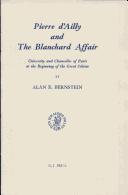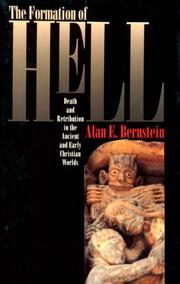| Listing 1 - 9 of 9 |
Sort by
|

ISBN: 9004057129 9789004057128 9004477810 9789004477810 Year: 1978 Volume: 24 Publisher: Leiden Brill
Abstract | Keywords | Export | Availability | Bookmark
 Loading...
Loading...Choose an application
- Reference Manager
- EndNote
- RefWorks (Direct export to RefWorks)
Universities and colleges --- Schism, The Great Western, 1378-1417 --- Church and college --- Universités --- Grand Schisme d'Occident, 1378-1417 --- Eglise et université --- History --- Histoire --- Ailly, Pierre d', --- Blanchard, John, --- Church history --- Education, Medieval --- Paris --- 378.4 <44 PARIS> --- -Education, Medieval --- -#GROL:SEMI-1-05'13' Dail --- Education --- Medieval education --- Seven liberal arts --- Civilization, Medieval --- Learning and scholarship --- Christianity --- Ecclesiastical history --- History, Church --- History, Ecclesiastical --- Great Schism --- Great Western Schism --- Papal Schism, 1378-1417 --- Western Schism --- Papacy --- Universiteiten--Frankrijk--PARIS --- Ailly, Pierre d' --- Blanchard, John --- Paris. University --- -History --- -Church history --- Schism, The Great Western, 1378-1417. --- -378.4 <44 PARIS> --- 378.4 <44 PARIS> Universiteiten--Frankrijk--PARIS --- -Universities and colleges --- Universités --- Eglise et université --- #GROL:SEMI-1-05'13' Dail --- Middle Ages, 600-1500 --- Ailly, Peter of, --- Ailliaco, Petrus de, --- D'Ailly, Pierre, --- Ailly, Peter von, --- Aliaco, Petrus de, --- Alliacus, Petrus, --- Petrus, --- Pierre, --- Eliaco, Petrus de, --- Paris. --- Church history - Middle Ages, 600-1500 --- Education, Medieval - France - Paris --- Ailly, Pierre d', - 1350-1420? --- Blanchard, John, - approximately 1322
Book
ISBN: 1857282256 9781857282252 Year: 2004 Publisher: London Routledge
Abstract | Keywords | Export | Availability | Bookmark
 Loading...
Loading...Choose an application
- Reference Manager
- EndNote
- RefWorks (Direct export to RefWorks)
236.4 --- 236.4 Hel. Gehenna. Eeuwigdurende straf. Verdoemden. Louterend vuur --- Hel. Gehenna. Eeuwigdurende straf. Verdoemden. Louterend vuur --- Hel. --- Vroege middeleeuwen. --- Hölle. --- Godsdienst. --- Hell --- Judaism --- Klassieke oudheid. --- Biblical teaching. --- Christianity --- History of doctrines --- Doctrines --- History. --- Rome --- Religion. --- Early christian, ca. 30-600 --- Comparative studies --- Biblical teaching --- Religion
Book
ISBN: 1501712489 9781501712487 9781501712494 1501712497 9781501707803 1501707809 9781501707803 Year: 2017 Publisher: Ithaca, New York ; London, [England] : Cornell University Press,
Abstract | Keywords | Export | Availability | Bookmark
 Loading...
Loading...Choose an application
- Reference Manager
- EndNote
- RefWorks (Direct export to RefWorks)
The idea of punishment after death-whereby the souls of the wicked are consigned to Hell (Gehenna, Gehinnom, or Jahannam)-emerged out of beliefs found across the Mediterranean, from ancient Egypt to Zoroastrian Persia, and became fundamental to the Abrahamic religions. Once Hell achieved doctrinal expression in the New Testament, the Talmud, and the Qur'an, thinkers began to question Hell's eternity, and to consider possible alternatives-hell's rivals. Some imagined outright escape, others periodic but temporary relief within the torments. One option, including Purgatory and, in the Eastern Orthodox tradition, the Middle State, was to consider the punishments to be temporary and purifying. Despite these moral and theological hesitations, the idea of Hell has remained a historical and theological force until the present.In Hell and Its Rivals, Alan E. Bernstein examines an array of sources from within and beyond the three Abrahamic faiths-including theology, chronicles, legal charters, edifying tales, and narratives of near-death experiences-to analyze the origins and evolution of belief in Hell. Key social institutions, including slavery, capital punishment, and monarchy, also affected the afterlife beliefs of Jews, Christians, and Muslims. Reflection on hell encouraged a stigmatization of "the other" that in turn emphasized the differences between these religions. Yet, despite these rivalries, each community proclaimed eternal punishment and answered related challenges to it in similar terms. For all that divided them, they agreed on the need for-and fact of-Hell.
Hell --- Endless punishment --- Eternal punishment --- Everlasting punishment --- Hades --- Sheol --- Future life --- Future punishment --- Damned --- Judaism --- History of doctrines --- Islam --- Christianity

ISBN: 0801428939 Year: 1993 Publisher: Ithaca : Cornell University Press,
Abstract | Keywords | Export | Availability | Bookmark
 Loading...
Loading...Choose an application
- Reference Manager
- EndNote
- RefWorks (Direct export to RefWorks)
Hell --- Judaism --- Enfer --- Judaïsme --- Biblical teaching --- Christianity --- History of doctrines --- Comparative studies --- Doctrines --- History --- Enseignement biblique --- Christianisme --- Histoire des doctrines --- Ouvrages avant 1800 --- Etudes comparatives --- Histoire --- Rome --- Religion --- History.
Book
Year: 1978 Publisher: Leiden Brill
Abstract | Keywords | Export | Availability | Bookmark
 Loading...
Loading...Choose an application
- Reference Manager
- EndNote
- RefWorks (Direct export to RefWorks)
Book
ISBN: 9781501711756 Year: 2019 Publisher: Ithaca, NY
Abstract | Keywords | Export | Availability | Bookmark
 Loading...
Loading...Choose an application
- Reference Manager
- EndNote
- RefWorks (Direct export to RefWorks)
Digital
ISBN: 9781501711756 Year: 2020 Publisher: Ithaca, N.Y. Cornell University Press
Abstract | Keywords | Export | Availability | Bookmark
 Loading...
Loading...Choose an application
- Reference Manager
- EndNote
- RefWorks (Direct export to RefWorks)
Digital
ISBN: 9781501712494 Year: 2017 Publisher: Ithaca, N.Y. Cornell University Press
Abstract | Keywords | Export | Availability | Bookmark
 Loading...
Loading...Choose an application
- Reference Manager
- EndNote
- RefWorks (Direct export to RefWorks)
Book
ISBN: 9780773452428 0773452427 Year: 2007 Publisher: Lewiston [etc.] Edwin Mellen Press
Abstract | Keywords | Export | Availability | Bookmark
 Loading...
Loading...Choose an application
- Reference Manager
- EndNote
- RefWorks (Direct export to RefWorks)
This book examines the demonology of William of Auvergne, to determine why and how he constructed his theories out of contemporary lore about demons and other spirits. William was a master of theology in the University of Paris and bishop of Paris from 1228 until his death in 1249, a position in which he served as a major advisor to the young Louis IX. With his demonology he sought to impose an order he considered doctrinally acceptable onto the turbulence of early thirteenth-century France.
Demonology. --- Démonologie --- William, --- Démonologie
| Listing 1 - 9 of 9 |
Sort by
|

 Search
Search Feedback
Feedback About UniCat
About UniCat  Help
Help News
News